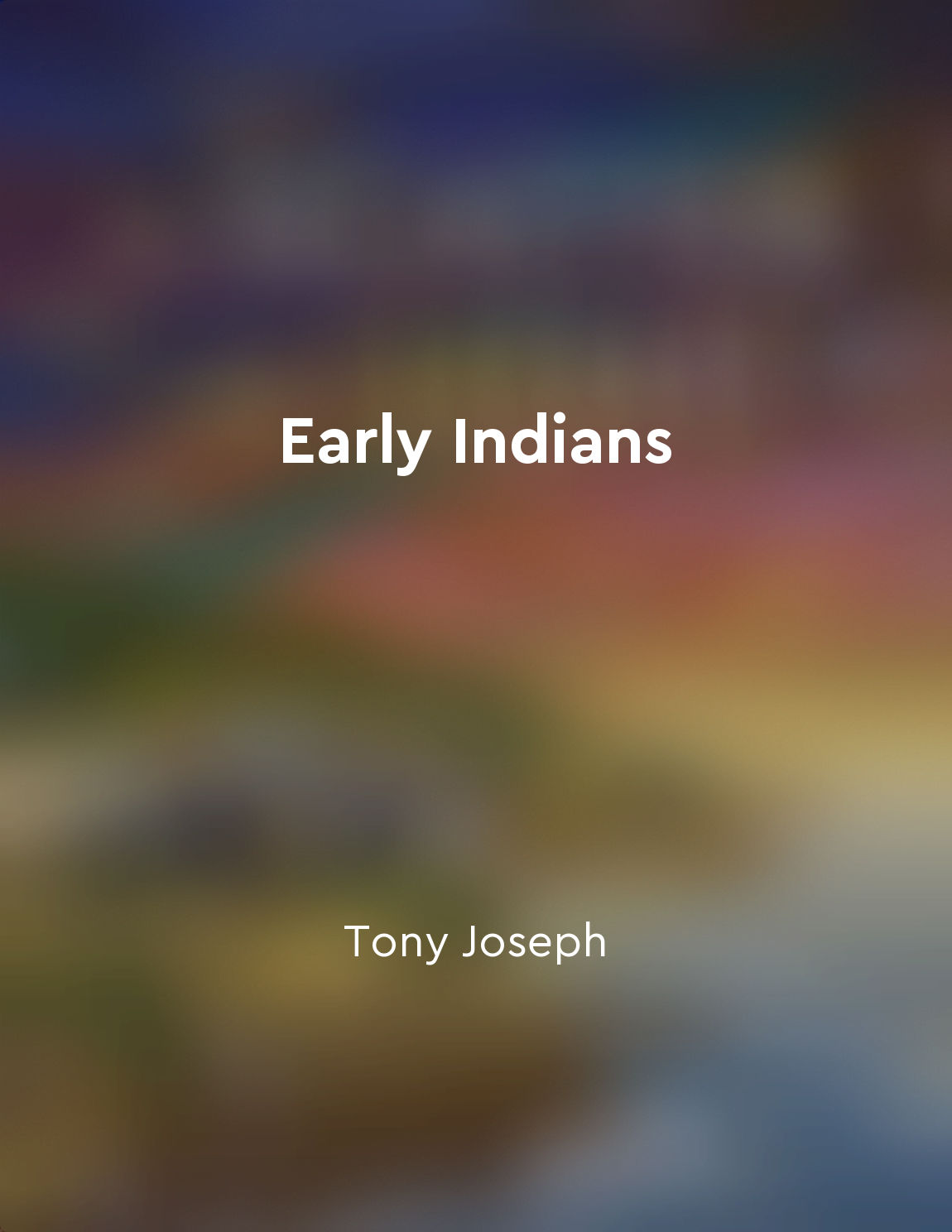The Vedic Period marks an important chapter in India's ancient history from "summary" of The Ancient History of India, Vedic Period by K. C. Singhal,Roshan Gupta
The Vedic Period stands as a significant milestone in the ancient history of India, representing a time of profound cultural, social, and religious developments. This era, which spanned from around 1500 BC to 500 BC, is named after the Vedas, the sacred texts of Hinduism that were composed during this time. The Vedas hold immense importance in Indian culture, serving as the foundation for various religious and philosophical beliefs that continue to influence the country to this day. During the Vedic Period, the society was primarily divided into four varnas or social classes - the priests (Brahmins), warriors (Kshatriyas), traders and farmers (Vaishyas), and laborers (Shudras). This caste system played a crucial role in shaping the social structure of ancient India and had a lasting impact on the country's social hierarchy. Additionally, the period saw the emergence of various rituals, ceremonies, and religious practices that formed an integral part of Vedic society. The Vedic Period was also characterized by significant advancements in technology, agriculture, and trade. The people of this era developed sophisticated irrigation systems, metalworking techniques, and methods of transportation that contributed to the overall progress of society. Trade flourished during this time, with the exchange of goods and ideas happening not only within India but also with neighboring regions. Furthermore, the Vedic Period witnessed the proliferation of art, literature, and philosophy. The hymns and verses of the Vedas are considered some of the earliest examples of Indian literature, showcasing the rich cultural heritage of the time. Philosophical ideas such as karma, dharma, and moksha were also introduced during this period, laying the groundwork for the development of various philosophical schools in later centuries.- The Vedic Period symbolizes a crucial phase in India's ancient history, characterized by significant cultural, social, and religious developments. The legacy of this era continues to shape the identity of modern India, highlighting the enduring influence of the Vedas and the profound impact of Vedic civilization on the country's heritage.
Similar Posts
Practice kindness and compassion towards others
Being kind and compassionate towards others is not just a mere suggestion, but rather a way of life that can bring immense joy ...
India's ancient civilization
India's ancient civilization is a complex tapestry woven over thousands of years, with threads of diverse cultures, religions, ...
Both Buddha and Karl Marx sought to address social injustices
Both Buddha and Karl Marx were visionaries who recognized the prevalence of social injustices in their respective societies and...
Mughal Empire played a significant role in shaping India
The Mughal Empire was a powerful dynasty that ruled over the Indian subcontinent for centuries, leaving a lasting impact on the...

IndoEuropean languages spread through North India
The spread of Indo-European languages through North India can be traced back to around 4000 years ago. Linguistic studies revea...
Partition of India led to communal tensions and migrations
The partition of India in 1947 was a significant event in the history of the Indian subcontinent. The division of British India...

